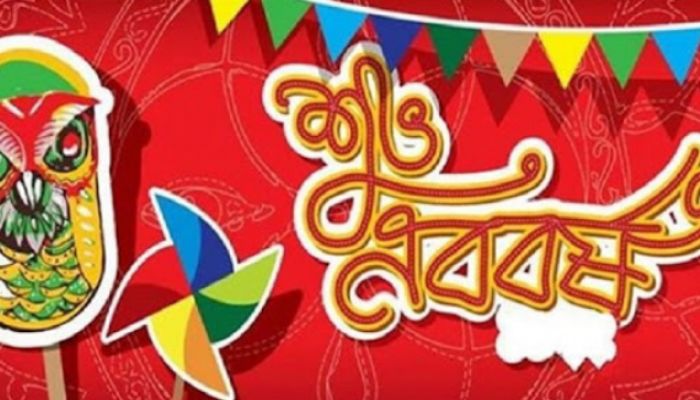
Unprecedented Pahela Baishakh Being Celebrated
Desk Report
Published: 14 Apr 2020, 01:03 pm

The people of Bangladesh are celebrating a special Pahela Baishakh, the first day of the Bengali Calendar.
The procession of death around the globe owing to the corona pandemic has taken the place of the procession of the new year of Bengali in 1427.
In line with Bangladesh and parts of India, Bengali-speaking expatriates celebrate the day in host countries with a number of festivities, including Mongolian Shovajatra — a parade of good wishes attended by the people at the dawn of the new year.
However, the day is observed throughout the country and elsewhere without any services owing to the deteriorating coronavirus condition.
Unlike in previous years, people are not going to Ramna Botomul in vibrant outfits to mark the day for the sake of the social isolation required to control the deadly disease.
The government has stopped all Pahela Baishakh's programs asking people to mark the day in their homes.
However, newspapers also published special stories, while TVs and radio stations transmit different programs on this day.
From 8:30 a.m. today (Tuesday) as per the order of Prime Minister Sheik Hasina, the program of the Ministry of Cultural Affairs started to be broadcast on all channels.
Pahela Baishakh is celebrated every year in Bangladesh and some Indian states, including West Bengal, Assam, Tripura, Jharkhand, and Odisha, on April 14, in the midst of festivities and excitement.
During his rule, Mughal Emperor Akbar introduced the Bangeli year in order to promote the collection of taxes from 1556 to 1605 AD.
Prime Minister Sheik Hasina expressed optimism yesterday that one day the gloom of the coronavirus pandemic will go away.
She said that her government has already released a series of support packages worth Tk 95,619 crore, which is 3.3 percent of GDP.
On the eve of Pahela Baishakh, the Prime Minister addressed the country and declared four developmental initiatives to be initiated in three phases by 2023-24 fiscal year.